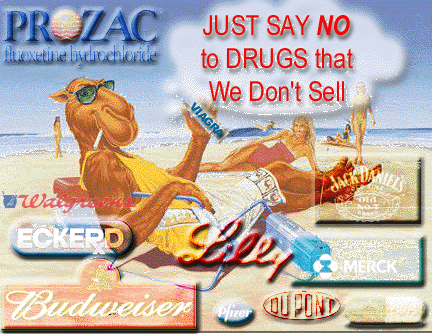
I think the major problem here is the objective.
I agree with you that sparking a kid's interest in worthwhile activities is probably the main part of good parenting, I think we make a big,
big mistake when we tell kids to just say
"NO" to drugs. That objective is entirely unattainable and probably not even desirable. What we really want is not for kids to avoid drugs, but for them to avoid
problems with drugs. So we tell them to only take drugs with the permission and supervision of their doctors. But, as SF Gate Columnist Mark Morford so well explains in his recent column,
Giant Floating Purple Pills, that doesn't always work out to best effect either. The only solution that makes sense to me is to teach our kids to be good, competent and self directed consumers. Not just in the area of drugs and medicine, but in all areas of their lives.
Drug free America only exists on a map of flat Earth. "No" is just one word; not enough information.
Just Say Know!
There are not enough jails, not enough policemen, not enough courts to enforce a law not supported by the people.
-- HUBERT H. HUMPHREY, speech (1965)